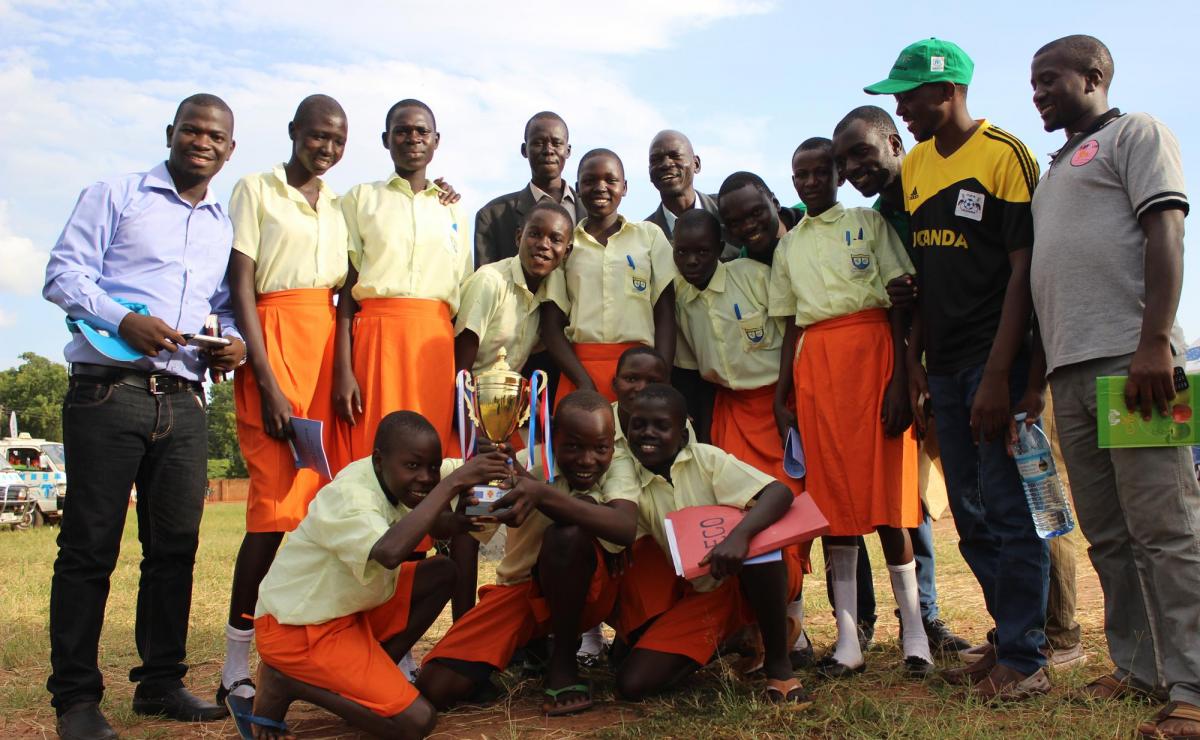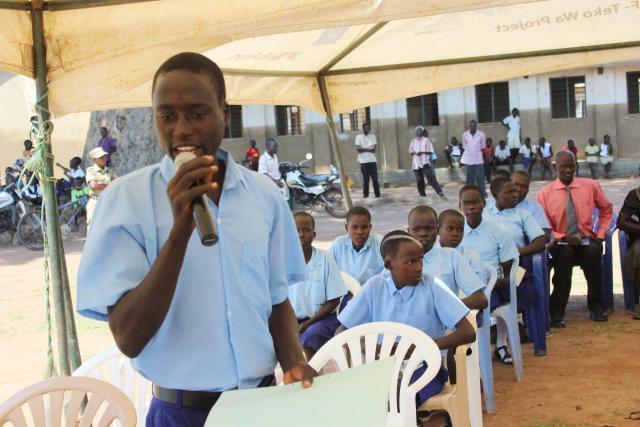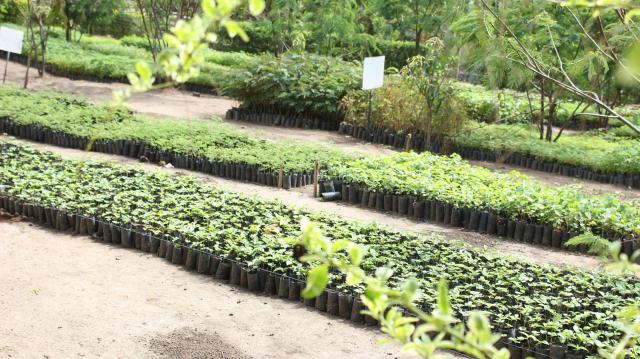LWF nurturing a green generation

Pupils taking the lead in environment conservation
Northern Uganda – “Uganda is from end to end a beautiful garden, where staple food of the people grows almost without labour. Does it not sound like a paradise on earth? It is the Pearl of Africa,” wrote former UK Prime Minister Sir Churchill Winston in his 1908 book titled ‘My African Journey’.
It is the beautiful garden that Benson Okello, a P.7 pupil from Baratiba Primary School in Agago, says they want to keep green. Okello, with other primary school pupils from Kitgum, Agago, Lamwo and Pader districts, are on a mission to conserve the environment so as to avert the effects of climate change and global warming.
With support from the Lutheran World Federation (LWF) and school administrations, pupils in the four districts have formed eco clubs, under which they engage in environment-saving activities. “We plant trees not only in our schools, but our homes and neighbouring communities, too,” said Okello.
He continued to say that his home district is very hot and is on the verge of facing a heatwave as it rarely receives rains. This, the young environmentalist blames on charcoal producers who continuously clear the greenery. Okello explains that with more trees planted, they hope to get more rains and limited dry spells.
Okello says that rain/water is life and without it, no living thing can exist. “The warm weather comes with too much dust, hence diseases such as flu and cough. We miss to play in the rain too,” he added.
According to NASA Weather, the four districts are relatively very warm. They accommodate over 960,000 people on approximately 6,339 square miles in northern Uganda’s Acholi sub-region as of the 2014 population census by the Uganda Bureau of Statistics.

Eco-club activities for environmental conservation
While tree planting remains one of the major activities in eco-clubs, pupils also engage in raising issues of environmental awareness, both at school and in their neighborhoods. Scovia Kyampire, a teacher and the eco-club patron at Opete Primary School in Kitgum, says that the club members are equipped with environment information and skills that they pass on to their peers, families and communities.
“Eco-club members educate people in their circles on how to keep the environment green. They, for instance, inform them on the dangers of deforestation and also teach them how to plant and manage woodlots, as well as medicinal plants,” Kyampire added. “Each one of us was previously given 15 seedlings to plant with our families at home and in their neighbourhood by LWF,” added Atimango Prisca Novinsha, a pupil at Opete Primary School.
Members also engage in environment-themed debate, poetry and quiz competitions at both school and district levels, organised by LWF, in partnership with school administrations.
Through debates and quizzes, Kyampire explains that they are nurturing future parliamentarians and citizens who will be confident, eloquent and informed enough to lobby for environment-related bylaws. “Poetry, debates and quizzes also offer us a platform to sensitise our audiences about environment and also inform them about the current global warming and its effects,” added Atimango.
Through eco-clubs, Denish Opira, an eco-club patron and a teacher at Pagen Primary School in Lamwo district, says pupils maintain composting pits and environment bins, construct water harvesting structures in school and also maintain public places, such as gardens, both within and outside the school campus. “Eco-club members also mobilise action-like awareness sessions against environmentally unsound practices, such as deforestation for charcoal, bush burning and garbage disposal in unauthorized places,” Opira added.
Okello says beautifying the school compound with plants and flowers remains a priority to the eco-club members in his school.

Environment officers speak out about eco clubs.
Every country is facing drastic effects of global warming due to environmental degradation as explained by Henry Mukiibi, LWF’s Environment and Energy Project Manager. Mukiibi says human activities, such as bush burning, air and water pollution as well as deforestation remain some of the major activities that are aggressively deteriorating the climate.
Mukiibi says LWF is working with people of all age groups, especially the young in different communities towards combating environment degradation by creating awareness, distributing tree seedlings for planting, tree marking, as well as providing start-up kits for green businesses.
“Pupils are prioritised in our environment conservation campaigns because they are the future generation who are capable of playing a major role in achieving the 13th sustainable development goal of Climate Action by 2030,” Mukiibi lauded.
Just like Mukiibi, Anthony Aluku Lamwo district’s Natural Resource Officer for Lamwo district says that to have future environmentalists, children are supposed to be groomed with an environment culture from an early stage and eco clubs offer the best opportunity.
Mukiibi continued to say that pupils can become good advocators for climate action, as well as the best teaching and communication mediums to their communities. “Training 50 children in an eco-club is disseminating the same knowledge to 50 families and tens of friends as they (children) will disseminate the same information to their peers and families,” he said.
#EnvironmentProtectionFromDay1

